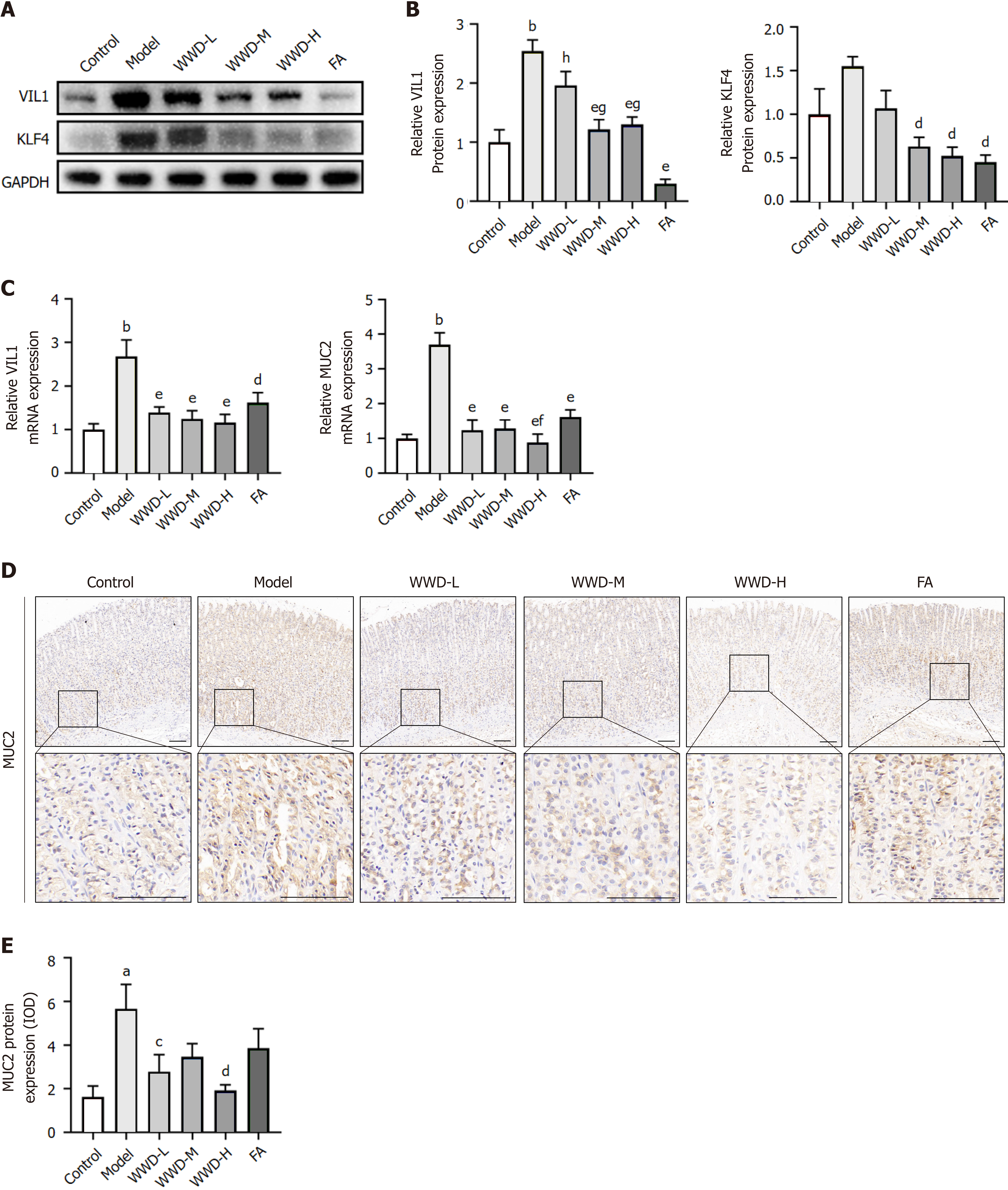Copyright
©The Author(s) 2024.
World J Gastrointest Oncol. Jul 15, 2024; 16(7): 3211-3229
Published online Jul 15, 2024. doi: 10.4251/wjgo.v16.i7.3211
Published online Jul 15, 2024. doi: 10.4251/wjgo.v16.i7.3211
Figure 4 Weiwei Decoction reduces the expression of intestinal markers KLF transcription factor 4, villin 1, and MUCIN 2 in intestinal metaplasia rats.
A: Western blot detection of villin 1 (VIL1) and KLF transcription factor 4 (KLF4) in rat gastric mucosa; B: Relative protein expression of VIL1 and KLF4 (n = 4); C: Relative mRNA expression of MUCIN 2 (MUC2) and VIL1 in gastric mucosa (n = 5); D: Immunohistochemistry detection of MUC2, representative images of the gastric mucosa in each group. Scale bar: 100 μm; E: Quantitative analysis of MUC2 protein expression in gastric tissues (n = 3). aP < 0.01, bP < 0.001 vs control group; cP < 0.05, dP < 0.01, eP < 0.001 vs model group; fP < 0.05, gP < 0.01, hP < 0.001 vs folic acid group. VIL1: Villin 1; KLF4: KLF transcription factor 4; WWD: Weiwei Decoction; FA: Folic acid; MUC2: MUCIN 2.
- Citation: Zhou DS, Zhang WJ, Song SY, Hong XX, Yang WQ, Li JJ, Xu JQ, Kang JY, Cai TT, Xu YF, Guo SJ, Pan HF, Li HW. Weiwei Decoction alleviates gastric intestinal metaplasia through the olfactomedin 4/nucleotide-binding oligomerization domain 1/caudal-type homeobox gene 2 signaling pathway. World J Gastrointest Oncol 2024; 16(7): 3211-3229
- URL: https://www.wjgnet.com/1948-5204/full/v16/i7/3211.htm
- DOI: https://dx.doi.org/10.4251/wjgo.v16.i7.3211









